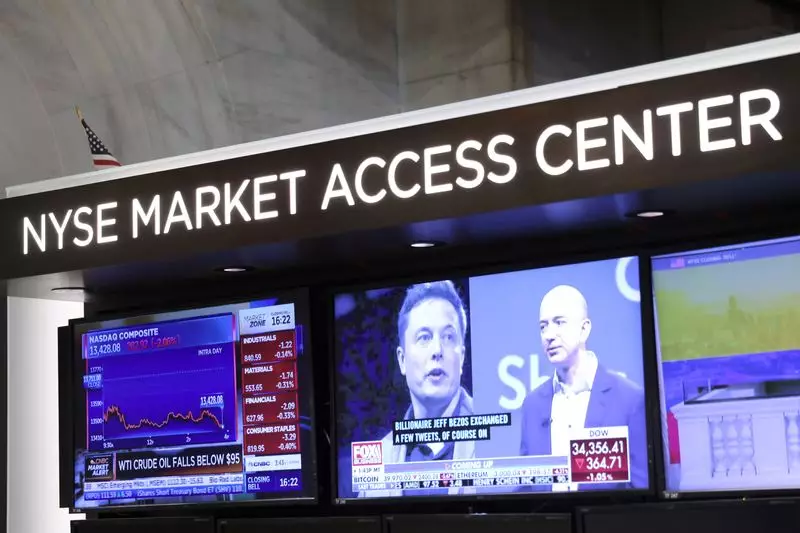The competition in the commercial space industry has intensified remarkably, especially between Jeff Bezos’ Blue Origin and Elon Musk’s SpaceX. In a recent interview, Bezos expressed his belief that Musk would not leverage his close relationship with President-elect Donald Trump to undermine Blue Origin. This claim speaks volumes about the current atmosphere in the aerospace sector, where collaboration and competition exist in a delicate balance. Bezos emphasized his trust in Musk’s commitment to the public interest, highlighting a rare moment of camaraderie between two fierce rivals in an industry often marred by perceived antagonism.
As Blue Origin gears up for the maiden launch of the New Glenn rocket, expectations run high. Standing at 30 stories tall, this new entry is seen as a game-changer that could significantly shift market dynamics in the satellite launch industry, which is currently dominated by SpaceX. The New Glenn represents not just a technological marvel but also Blue Origin’s long-awaited push into a competitive arena, signaling their readiness to carve out a substantive presence in orbital launches. This move could pave the way for a more diversified space launch market, stimulating innovation and reducing costs for satellite deployment.
Bezos shared his perspective on the potential directions NASA might take under Trump’s administration, alluding to industry-wide concerns regarding the space agency’s lunar program. While Musk advocates for a direct expedition to Mars, Bezos argues for a dual approach: a commitment to lunar exploration alongside Mars missions. This division in strategy reflects contrasting philosophies regarding the socio-political objectives behind space exploration. Bezos stressed that the continuity of these programs is vital; discontinuing initiatives could hinder advancements and waste resources, steering the industry away from long-term goals essential for sustainable exploration.
The political landscape seems poised to play a substantial role in shaping the future of space exploration in America. With Trump at the helm for a second term, significant changes to NASA’s objectives could emerge. Industrial giants must navigate this terrain carefully. Bezos’ financial contributions to Trump’s inauguration fund reveal the underlying complexity of their relationship; while strategic partnerships can be beneficial, the broader implications for industry standards and practices remain uncertain.
As Bezos and Musk face off in this exhilarating space race, their competing visions could ultimately lead to innovative breakthroughs. The financial clout, technological advancements, and competitive spirit prevalent in these enterprises fuel an era of rapid advancements in space exploration. As they both aim for ambitious goals—human habitat on Mars, sustainable lunar missions, and beyond—the path they carve will shape not just commercial space ventures but also ignite interest and investment in a future where interplanetary travel is not merely a dream but a profound possibility. Both titans, despite their rivalry, hint at a shared destiny: to push the boundaries of human exploration beyond our earthly confines.

